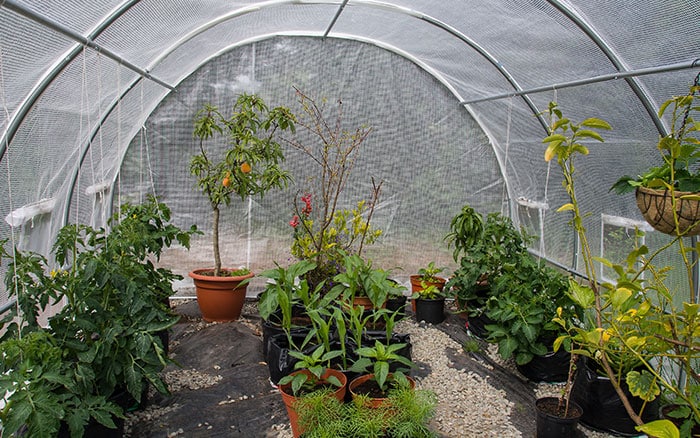Polytunnels and greenhouses both give you the ability to grow crops that normally don’t fare so well in the Great British climate. They also enable you to extend the current year’s growing season as well as giving you a head start on the new growing season.
So, whichever one you choose, it’s a win-win situation. But which one should you choose? Especially when space and funds are at a premium…
Money matters
Well, the cheapest option is definitely a polytunnel. It’s basically a framework of large hoops which slot into foundation tubes covered with a heavy-duty plastic. These are secured by digging the plastic into the soil along each side.
Venting them properly is the biggest hurdle, so ensure you choose one that has a door at both ends to create a through draft which is essential for healthy crops.

They’re not usually good at keeping heat in and condensation can also be a problem, but it’s now possible to buy specialist plastic with anti-fog properties which helps greatly reduce these issues.
Ground control

Another polytunnel advantage is that they don’t need a hardstanding, they can be put up directly on soil and the ground doesn’t need to be perfectly level like it does for a greenhouse. Polytunnels also usually quicker and easier to assemble than greenhouses.
The plastic covering on a polytunnel will need replacing around every 7 years as the plastic starts to degrade.
When this degrades, light transmission lessens, whereas a greenhouse can potentially last a lifetime as long as the glass panes don’t break.
Let there be light
If growing fruit, veg and flowers is your main priority then maximum light transmission is the main aim. In this case, a glass glazed greenhouse wins hands down because the polythene doesn’t allow as much light through as glass does.
Plus, glass retains heat longer than any other glazing material. On the other hand, the design of a polytunnel is better suited to growing larger amounts of fruit and vegetables, but there’s no doubt a greenhouse looks far nicer than its plastic coated cousins!


Leave A Comment